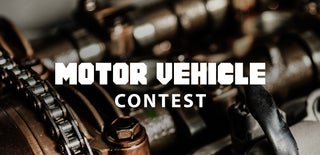Introduction: How to Restore an Old E-scooter
Hello,
Some time ago, I bought an old electric scooter for fifteen euros in a flea market.
Obviously, this scooter no longer worked, which is why it was very inexpensive.
In this instructable, I will show you, how, step by step, I restored it with little equipment and few purchases. I specify that the majority of electric scooters before about 2010-2015 are electrically built on the same principle, this tutorial is therefore adaptable according to the broken scooter that you have and that you want to restore.
It's very simple to do this tuto.
I restored my scooter with as few purchases as possible, I was lucky enough to already have the right batteries and the right power supply to charge the batteries, so it cost me very little money.
I apologize in advance for the translation which is probably not perfect because I am French speaking.
Supplies
Step 1: You Said Electric Scooter ?
For this step, I will simply explain to you how a basic electric scooter works.
The controller manages the speed of the motor powered by batteries, the speed of the motor is regulated by an accelerator handle. Often, these are the batteries that no longer work. Indeed, batteries have a limited lifespan, often of the order of 600 to 1000 charge-discharge cycles for lead-acid batteries, the batteries found on old electric scooters, but also in cars by example. These lead-acid batteries are all replaced by lithium batteries, more efficient, but also much more expensive and less easy to use. This is why I would not dwell on it, many tutorials exist on it: Lithium battery for an e-bike.
Other times, the controller no longer works. In this case, you can take $ 20 off your wallet and I don't think it's really profitable to repair the scooter, I'll quickly explain in step 4 how to do it,
I also recommend the YouTube channel of tchangly21 to know how to do precisely, it is a French channel, but you can use the subtitles in English.
Step 2: Disassemble
It will be better to partially disassemble the scooter to understand how it works and better repair it. You can dismantle each part or simply separate the different parts: handlebars, chassis ...
This step is not necessary but I strongly recommend it to be able to solve mechanical problems: the handlebars which do not turn, a wheel which is stuck ...
Remember to take photos during disassembly to be able to reassemble the whole scooter more easily, if you disconnect cables, put a label on it to know what they correspond to; I use a piece of masking tape and I write on it with a pen, it's very simple. Also, group all the screws, the nuts, in a closed box; a butter dish will do the trick.
If desired, you can repaint the rooms to look better. Opt for spray paint (easier to use) "metal", preferably anti-rust to better protect the metal from the vagaries of time. Remember to sand and clean the metal before painting so that the paint adheres well. I did not repaint my scooter because it did not need it. You see the motor in picture 4 that he's very durty.
Step 3: Change Batteries
We will now be able to change the batteries and revive our electric scooter. This step is very simple but I want to draw you to certain points. Electricity is dangerous. Be careful where you put your hands, and above all, do not short-circuit! This will give you a big chestnut and could destroy the controller and / or the batteries. Be even more careful if you opt for the lithium battery solution because a short circuit would make them explode! I would in no way be held responsible.
We will first disconnect the two batteries from the controller to avoid electrical risks. We will then extract the batteries. Dispose of your used batteries at a recycling center.
Insert the new batteries in the compartment and connect them respecting the polarity: the red terminal on the red wire and the black terminal on the black wire. Look at the photo of the battery, the polarities are indicated. You can now test the scooter by turning it on and slightly twisting the throttle grip. Throttle grips are often very sensitive, so take it slowly.
Step 4: Reassemble the Scooter
Use the photos you took to reassemble the scooter. The main faults that can be observed in step 2 are:
The belt is broken. Note the reference of this one (the reference is indicated directly on the strap) then buy a new one. Put it in place by removing the rear wheel; the belt must have good tension, neither too loose (the belt must not start), nor too tight, otherwise the engine will have difficulties.
The controller no longer works. Take a picture of the different electrical connections and then buy one of the same model. It then remains simply to reattach the new controller and connect the various cables as in your photos.
Step 5: Finish
You repaired your electric scooter, well done !!! I should point out, however, that these scooters are not necessarily "legal". This requires that the engine has a nominal power of 250W max and that your scooter does not exceed 25 km / h. Wear a helmet of course! You can now use your scooter.
I hope that you liked this tutorial, that it taught you things, that you did it yourself ...

Participated in the
Motor Vehicle Contest









